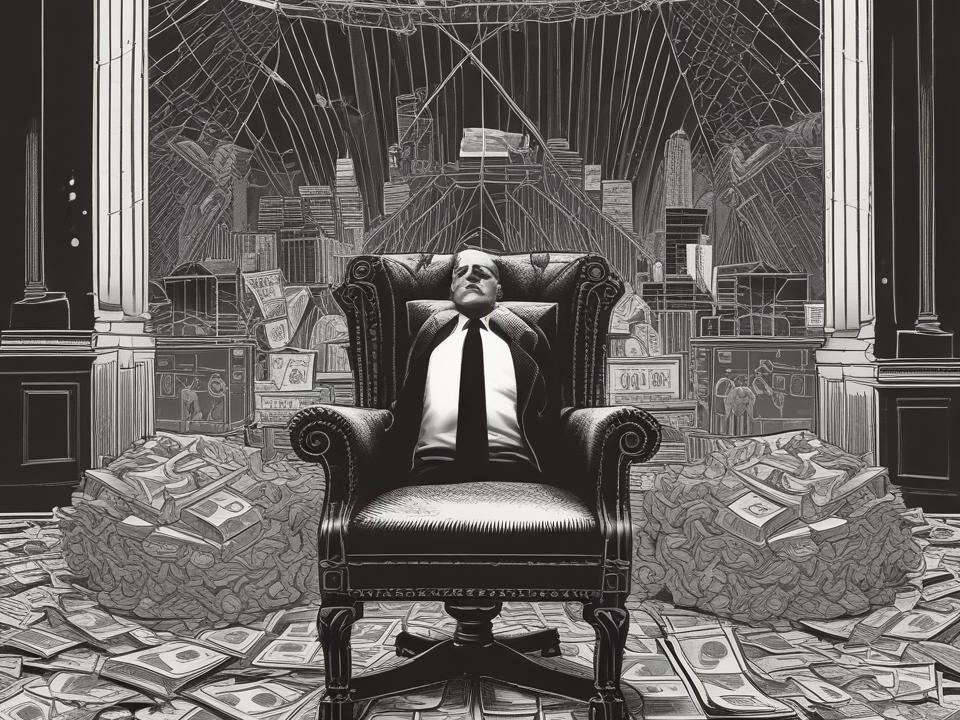The Ultimate Bailout - Diddy’s Legal Tightrope, Hidden AR-15s, and Vanishing Hotel Videos
Sean "Diddy" Combs is no stranger to headlines, but his current legal battle is far from the flashy tabloid fodder of celebrity feuds and chart-topping hits. Despite his best efforts to secure bail, a federal judge denied his request, citing concerns over his alleged history of violence, obstruction, and the vast wealth that could make him a flight risk. The allegations against him are as serious as they are extensive, with claims of abuse, intimidation, weapons possession, and even an alleged attempt to bribe a hotel security guard to make evidence disappear.
Decades of Alleged Abuse and Violence
Prosecutors have accused Combs of a long-standing pattern of abuse spanning decades. The charges include allegations of physical and sexual abuse of women, intimidation of his staff, and reliance on his entourage to enforce his control. Victims reportedly feared retaliation if they refused his demands. This pattern of coercion, prosecutors argue, allowed Combs to operate with impunity for years.
Adding weight to the charges are allegations related to Combs' access to weapons. During police searches of his Los Angeles and Miami residences in March 2024, authorities discovered a small arsenal. Among the items seized were:
- Three AR-15 rifles with defaced serial numbers — a common tactic to make weapons untraceable.
- Loaded ammunition magazines, including a large-capacity 59-round drum magazine.
- Six legally registered firearms, some of which were stored in safes but still within easy reach.
The discovery of AR-15 parts and loaded magazines in Combs’ Miami bedroom closet raised concerns. Prosecutors argue that even if Combs were subjected to court-ordered restrictions, his history of access to firearms — both legal and illegal — would allow him to arm himself if he wished.
Prosecutors further pointed out that members of Combs’ personal security team have criminal histories, including convictions for violent crimes and weapons offenses. This, they argue, shows that Combs has a ready supply of people who can access firearms on his behalf.
The Hotel Bribe That Backfired
One of the most pivotal moments in the case is an alleged cover-up attempt at a 2016 “Freak Off” party hosted by Combs at a luxury hotel. Video surveillance reportedly captured him striking, kicking, and dragging a woman in a public hotel area. When a hotel security guard intervened, prosecutors claim Combs pulled out a stack of cash and tried to bribe him to stay quiet.
When the security guard refused, Combs' staff allegedly swung into action. They contacted other members of the hotel’s security team and also made contact with the victim. Days later, the security footage of the incident mysteriously disappeared from the hotel’s servers. Prosecutors argue this incident demonstrates a clear effort by Combs to obstruct justice — and they view it as a pattern, not a one-time occurrence.
Pre-Arrest Communications: Cooperation or Strategy?
One of the prosecution’s most compelling arguments revolves around Combs’ communication with authorities in the months before his arrest. Newly revealed email exchanges between his legal team and federal prosecutors show that Combs' attorneys provided regular updates on his movements. These updates included his travel schedules, precise flight details, and even his plans for a road trip to iconic U.S. landmarks like Sedona and the Grand Canyon.
The defense argues that this level of transparency shows Combs was cooperating with authorities and had no intention of fleeing. However, prosecutors claim it was a calculated strategy to position him as cooperative in anticipation of a possible arrest.
These pre-arrest communications are now a key part of the government's case. Prosecutors argue that even with his apparent cooperation, Combs' vast resources and history of obstruction make him too big of a flight risk. As they see it, his transparency was just another move in a larger effort to control the narrative and increase his odds of securing bail.
Too Rich to Run? The Case for Flight Risk
The prosecution's strongest argument for keeping Combs behind bars is his potential for flight. And when it comes to resources, Combs is in a league of his own. Consider the following:
- Net worth of nearly $1 billion, with liquid assets that would make it easy to disappear.
- Access to over $1 million in cash as of December 2023 — that’s more than enough for an impromptu getaway.
- Dozens of personal and corporate bank accounts, containing millions of dollars.
- Two primary residences in Los Angeles and Miami, plus a fleet of luxury cars in multiple locations.
- Ownership of a private jet (which he is now attempting to sell).
Even without his passport or private jet, prosecutors argue that Combs' wealth, power, and connections give him access to any means of escape he might choose. As they put it, “If he wanted to flee, he could do it tonight.”
The sale of his plane and the surrender of family passports have been framed by his defense as good-faith efforts to reassure the court that he won’t flee. But prosecutors argue that these measures are insufficient. With such extensive resources, they say Combs wouldn’t need a plane or a passport to disappear. Private charters, yachts, or third-party assistance would be well within his reach.
Public Persona vs. Private Reality
Combs' public image as a self-made mogul and cultural icon clashes with the allegations against him. He’s long presented himself as a man of resilience, success, and redemption. Privately, however, prosecutors argue he is a manipulator and enforcer, willing to do whatever it takes to protect his image.
This contradiction is on full display in his pre-arrest communications with federal authorities. By giving authorities updates on his whereabouts, Combs was able to present himself as cooperative. But prosecutors argue that this was all part of a "legal chess match" aimed at positioning himself as trustworthy in the event of an arrest.
What Happens Next?
With charges that carry a mandatory minimum of 15 years in prison — and a potential life sentence — Combs' legal team has an uphill battle. His defense argues that the evidence presented by the government is flawed and that Combs deserves a fair trial.
But prosecutors are leaning on the seriousness of the charges, the weight of the evidence, and Combs' access to limitless resources as justification to keep him in custody. The court agreed, with the judge denying his request for bail.
The trial will likely feature testimony from victims, former staff, and witnesses who allege years of abuse and manipulation. Federal prosecutors say they have evidence from dozens of electronic devices seized from Combs and his co-conspirators, as well as testimony from numerous victims who allegedly experienced his abuse firsthand.
Whether or not Combs can overcome these charges remains to be seen, but one thing is certain: his legal battle is far from over.



